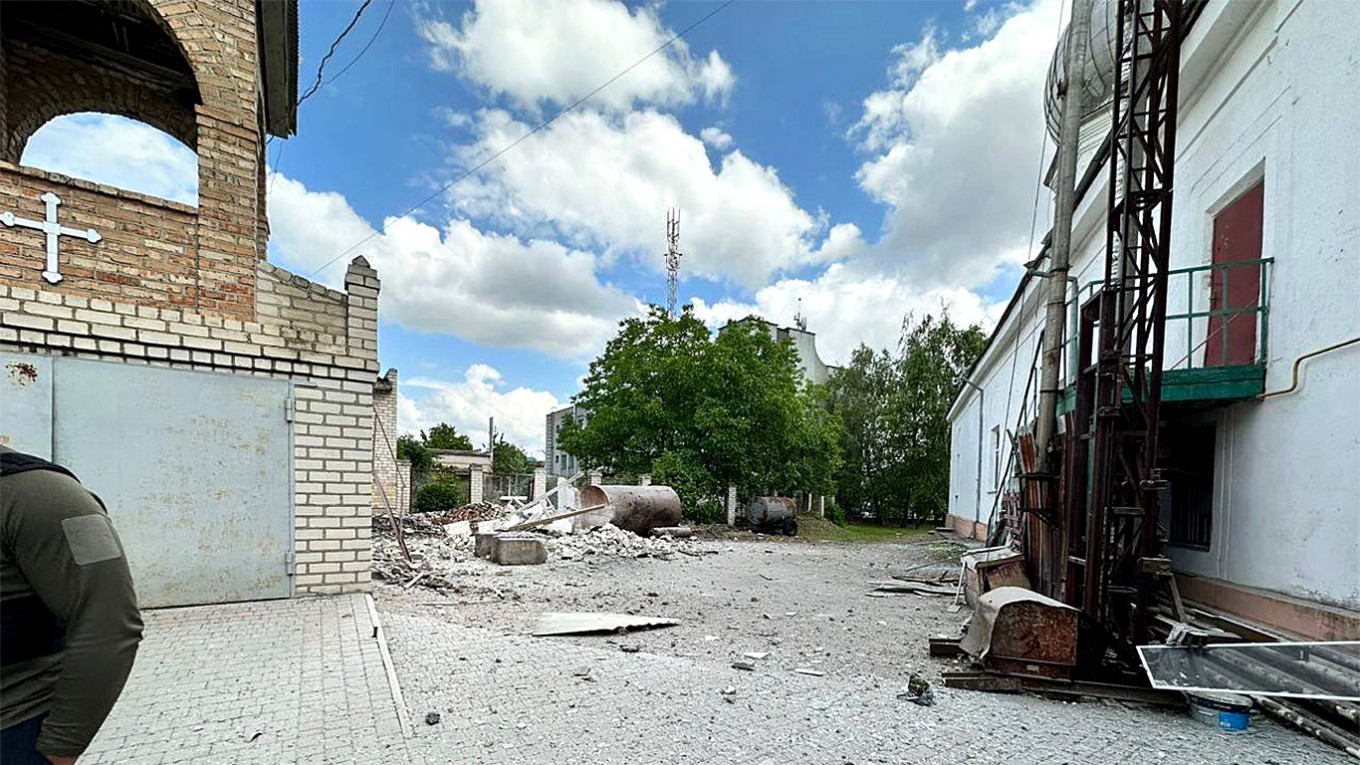Russian forces on Tuesday killed an elderly priest in a churchyard when they shelled the town of Bilozerka in southern Ukraine, authorities said.
Andriy Yermak, the head of Ukraine's presidential office, said on social media that the priest was 72, adding that a 76-year-old woman was wounded.
Four residential buildings, a post office, a central square and some administrative buildings were damaged, he said in a statement.
In a separate statement, the Office of the General Prosecutor said it was probing a "war crime."
Bilozerka is located about 10 kilometers (six miles) west of the southern city of Kherson, a regional center retaken by the Ukrainian army last year and partially flooded after the destruction of a dam on the Dnipro River last week.
Russia and Ukraine have accused each other of destroying the Kakhovka dam.
The Russian army has regularly shelled Kherson and its surroundings from the eastern bank of the Dnipro after the city was recaptured.
Kyiv says its forces have retaken seven villages and made advances in the country's east and south in its counter-offensive against Russia.
A Message from The Moscow Times:
Dear readers,
We are facing unprecedented challenges. Russia's Prosecutor General's Office has designated The Moscow Times as an "undesirable" organization, criminalizing our work and putting our staff at risk of prosecution. This follows our earlier unjust labeling as a "foreign agent."
These actions are direct attempts to silence independent journalism in Russia. The authorities claim our work "discredits the decisions of the Russian leadership." We see things differently: we strive to provide accurate, unbiased reporting on Russia.
We, the journalists of The Moscow Times, refuse to be silenced. But to continue our work, we need your help.
Your support, no matter how small, makes a world of difference. If you can, please support us monthly starting from just $2. It's quick to set up, and every contribution makes a significant impact.
By supporting The Moscow Times, you're defending open, independent journalism in the face of repression. Thank you for standing with us.
Remind me later.






